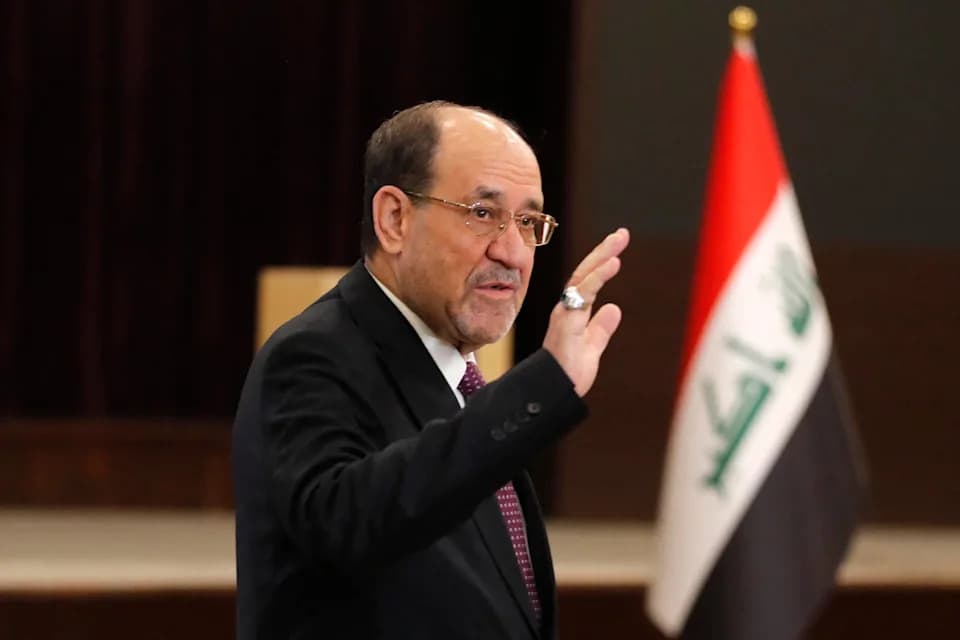The parliamentary election in Iraq is unfolding amid regional tensions and domestic frustration over jobs and public services. Voting for security personnel and displaced people begins Sunday, with a nationwide ballot on Tuesday. Key issues include a Sadrist boycott, participation of Iran‑linked militias through political blocs, allegations of corruption and candidate disqualifications, and falling voter registration (21.4M of ~32M). The result will shape coalition bargaining and whether PM Mohammed Shia al‑Sudani can secure a second term.
Iraq’s Pivotal Parliamentary Vote: What’s at Stake for Stability, Militias and Power-Sharing

Iraq’s Parliamentary Vote: What’s at Stake
Iraqis are preparing to cast ballots in a parliamentary election at a tense moment for the country and the wider region. Voting begins Sunday with polling for security personnel and displaced people; the nationwide vote is scheduled for Tuesday. The result will shape whether Prime Minister Mohammed Shia al‑Sudani can secure a second term and will influence Baghdad’s ability to manage competing pressures at home and abroad.
Regional and security context
The election takes place amid fears of a wider Israel‑Iran confrontation and the possibility of strikes against Iran‑aligned groups operating in Iraq. Baghdad is trying to preserve a fragile balance in its relations with Tehran and Washington as pressure mounts on Iraq to rein in armed factions that operate with varying degrees of autonomy.
Iraq’s electoral framework
This is the seventh parliamentary election since the 2003 U.S.‑led invasion that toppled Saddam Hussein. While large‑scale insurgency has receded from its peak, many Iraqis prioritize jobs and basic public services — including frequent power outages — over security concerns.
By law, 25% of the 329 seats in parliament are reserved for women, and nine seats are allocated to religious minorities. Under Iraq’s post‑2003 power‑sharing conventions, the speaker of Parliament is conventionally a Sunni, the prime minister a Shiite and the president a Kurd. Turnout has declined in recent cycles: the 2021 election recorded a post‑2003 low of 41%. Ahead of this vote, about 21.4 million of roughly 32 million eligible voters updated their registration and obtained voter cards. Unlike previous contests, there will be no polling stations abroad.
Main political forces
Some 7,744 candidates are contesting seats, drawn mainly from sectarian‑aligned parties and independents. Shiite lists include blocs led by former prime minister Nouri al‑Maliki and cleric Ammar al‑Hakim, alongside parties tied to armed groups. Sunni forces include lists led by former parliament speaker Mohammed al‑Halbousi and current speaker Mahmoud al‑Mashhadani. The two main Kurdish parties — the Kurdistan Democratic Party and the Patriotic Union of Kurdistan — remain influential in the north.
Several powerful Shiite militias with ties to Iran are contesting through affiliated political formations, such as Kataib Hezbollah (running as Harakat Huqouq) and the Sadiqoun Bloc led by Qais al‑Khazali of Asaib Ahl al‑Haq. At the same time, the influential Sadrist Movement, led by Muqtada al‑Sadr, is boycotting the vote — a decision that removes a major grassroots actor from the ballot and could reshape vote flows in Shiite areas such as Sadr City.
Reformist groups that emerged from the 2019 mass anti‑government protests are participating but remain hampered by internal divisions, limited funding and weak organizational reach.
Concerns about the process
Authorities and observers have raised alarms about corruption, vote‑buying and candidate disqualifications. Election officials have removed 848 candidates from the ballot, sometimes citing vaguely defined offences such as insulting religious rituals or the armed forces. Violence has marred past elections and isolated deadly incidents continue: on Oct. 15, Baghdad Provincial Council member and candidate Safaa al‑Mashhadani was killed by a car bomb; five suspects have been arrested and the attack is being prosecuted as terrorism.
Al‑Sudani’s bid for a second term
Al‑Sudani became prime minister in 2022 with backing from a coalition that included pro‑Iran parties, but he has since tried to present himself as a pragmatic manager focused on improving public services while balancing ties with Tehran and Washington. Despite relative stability under his first term, the path to reappointment is uncertain: since 2003 only one prime minister, Nouri al‑Maliki, has served more than one term.
The result will not automatically determine the next prime minister; post‑election coalition bargaining is often decisive. Al‑Sudani faces friction with members of the Shiite Coordination Framework over control of state institutions and rising international pressure — particularly from the U.S. — to curtail the autonomy of militias. The future of the Popular Mobilization Forces (PMF), an umbrella of militias integrated on paper into the Iraqi security apparatus but often operating independently, remains a central point of contention. Members of the PMF will vote alongside army personnel and other security forces on Saturday.
What to watch after the vote
Key post‑election indicators: overall turnout and whether the Sadrist boycott suppresses participation; the electoral strength of Iran‑linked blocs; the performance of reformist lists; reports of irregularities; and the pace and stability of coalition negotiations that will determine the next government.
In short, the election will test Iraq’s fragile political balance: it will reveal how power is redistributed among Shiite factions, Sunni and Kurdish parties, and emerging reformist forces — and whether Baghdad can keep a delicate foreign‑policy equilibrium while delivering improvements at home.
Help us improve.


































